Studying in Germany is becoming an increasingly attractive choice thanks to its top-quality education and reasonable costs. However, to realize that dream, applying for a student visa is the most important and mandatory step. In this article, we will guide you in detail on how to prepare documents, the application process and practical interview experiences to increase the visa approval rate.
I. How many types of German student visas are there? Time, conditions and differences
There are many different types of German student visas, designed specifically for each stage of study such as language study, preparatory, waiting for admission or regular program, helping students choose the right direction and limit additional procedures.
- 4 types of visas
Including German language study visa, university preparation visa, waiting visa and official student visa. Each type supports the journey to Germany from the beginning to the completion of the study program. The type of visa you choose will determine benefits such as the ability to work part-time, the length of stay and separate application requirements.
- Different timeframes
German language study visas are issued for 3-6 months; preparatory visas are for 12 months; official student visas can be up to 2 years and can be extended. Choosing the right type and duration will avoid interruptions or having to apply for multiple extensions. Visa extensions are usually simple if you maintain good academic performance and comply with German law.
- Special conditions
A language study visa requires a course confirmation letter, preparatory visa requires APS or passing the Studienkolleg, an official student visa requires an admission letter, blocked account and language certificate. Preparing the right documents will help your application to be error-free and avoid additional requests. A complete application according to the requirements of each type of visa will save time for review and create a good impression with the consulate.
- Distinguish clearly
A language study visa does not allow you to work part-time, although you can stay in Germany, while a regular student visa allows you to work up to 120 full-time or 240 part-time days per year. Choosing the right visa for your purpose will help you avoid breaking local laws. Violating regulations on part-time work can lead to the risk of losing your visa and affecting your future settlement application.
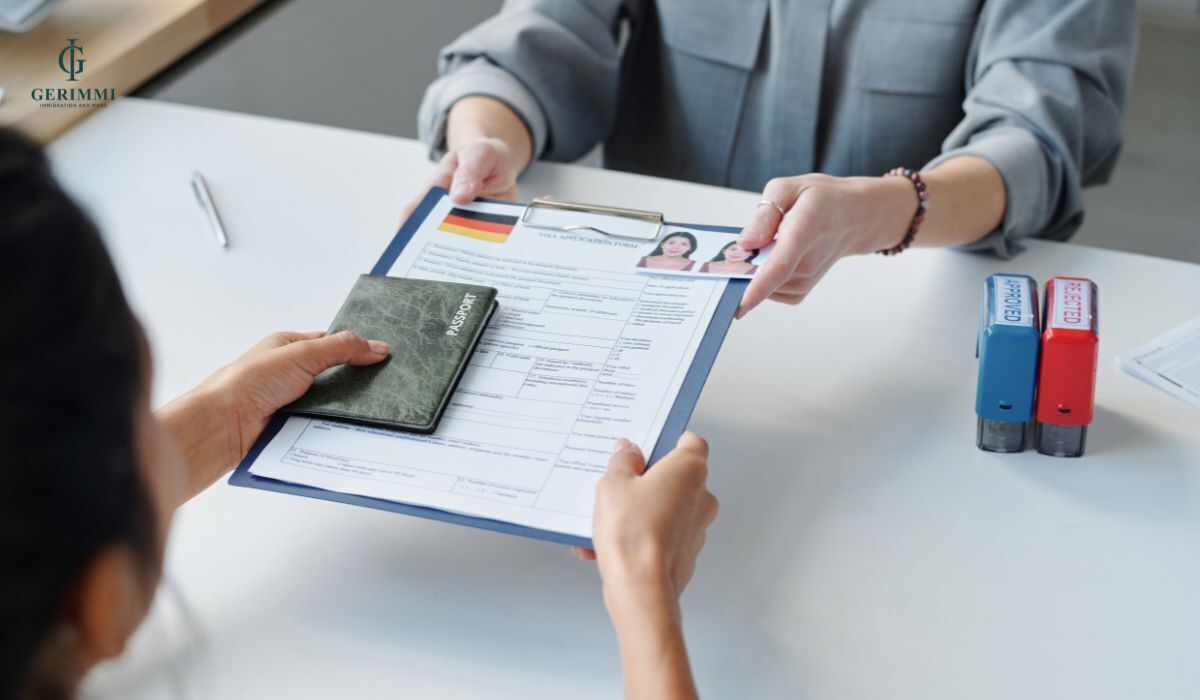
II. Popular types of German student visas
1. Visa to study German in Germany (Sprachkursvisum)
This is the typeGerman student visafor students who want to take German language courses lasting from 3 to 12 months at recognized language centers in Germany. This visa does not require an admission letter from a university, just a confirmation of registration for a language course is enough.
- Advantage: Simple and accessible procedures for beginners on their study abroad journey; no German language certificate required. In addition, living and studying in Germany helps to speed up the acquisition and practice practical language skills very effectively.
- Disadvantages: You are not allowed to work during your studies, cannot convert directly to a work visa, can only be used for language studies and cannot be extended long term. If you want to continue your studies at university, you must apply for another appropriate visa.
2. University preparatory study visa (Studienkolleg)
Type German student visa is for students who are not yet qualified to enter a German university program directly (usually Vietnamese students who have completed grade 12). Studienkolleg is a 1-year preparatory course that provides specialized knowledge and German language, helping students prepare for university entrance exams.
- Advantage:A necessary stepping stone for many Vietnamese students, helping you get acquainted with the German learning method and improve your language skills. After completing the Studienkolleg and passing the final exam (Feststellungsprüfung), you are eligible to enter university.
- Disadvantages:Studying at Studienkolleg is quite stressful, requiring German language level B1 or higher to enter. This visa is only valid for 12 months, you need to pass the exam within the prescribed time to avoid interruption or complicated renewal.
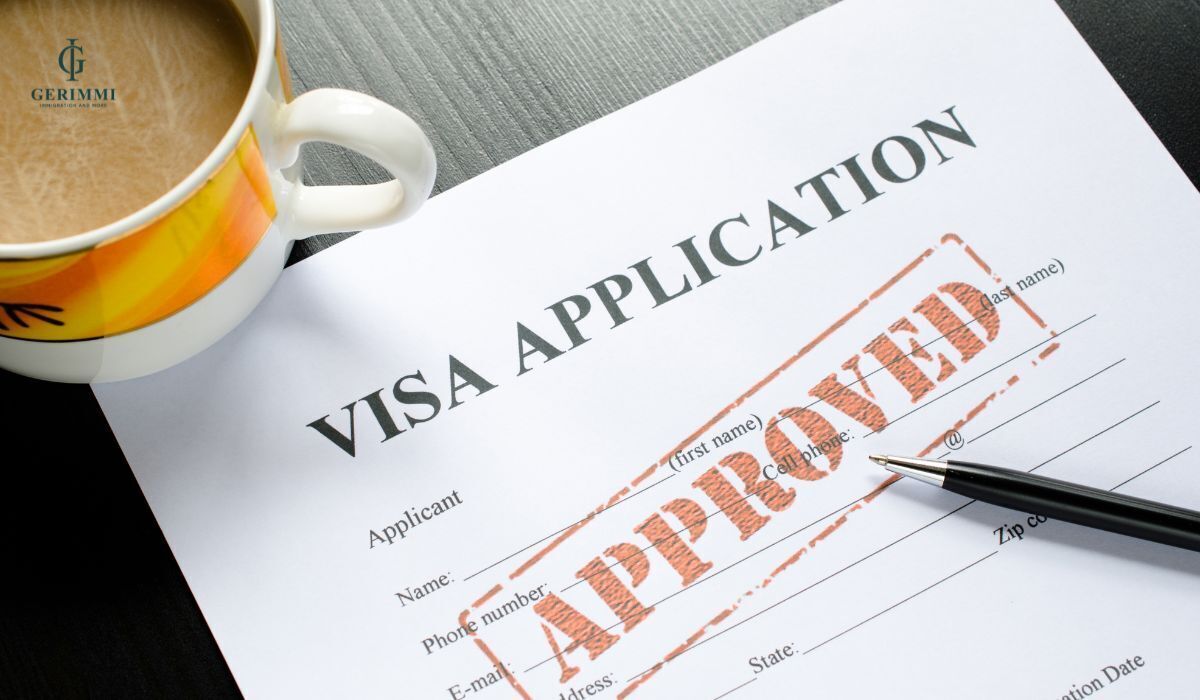
3. Waiting visa for admission (Studienbewerbervisum)
This is a German student visa for students who have applied to German universities but have not yet received an official invitation. This visa allows you to come to Germany in advance to take additional language courses, prepare your application, or take an on-site entrance exam.
- Advantage: Flexible, suitable for students who want to be proactive in Germany while waiting for feedback from the school. You can learn the language, take the entrance exam or prepare your documents more easily when you are in Germany.
- Disadvantages: Not allowed to study officially or work part-time without an official student visa. Short term (usually 3–6 months), must quickly switch to another visa type when receiving an admission letter to avoid interruption of residence.
4. Official student visa (Visum zu Studienzwecken)
This is the typeGerman student visaThe most common and is issued to students who have received an admission letter from a university or institute in Germany. The visa is longer-term and is suitable for undergraduate, master's or doctoral programs.
- Advantage: Long term, easily renewable during studies. Students are allowed to work 120 days full-time or 240 days part-time per year. Can use this visa as a basis for applying for permanent residence after graduation if eligible.
- Disadvantages: Visa application requirements are more stringent, including a letter of admission, proof of financial resources (Sperrkonto), health insurance and a German language certificate (or English if studying an international program). The processing time is longer than other types of visas.
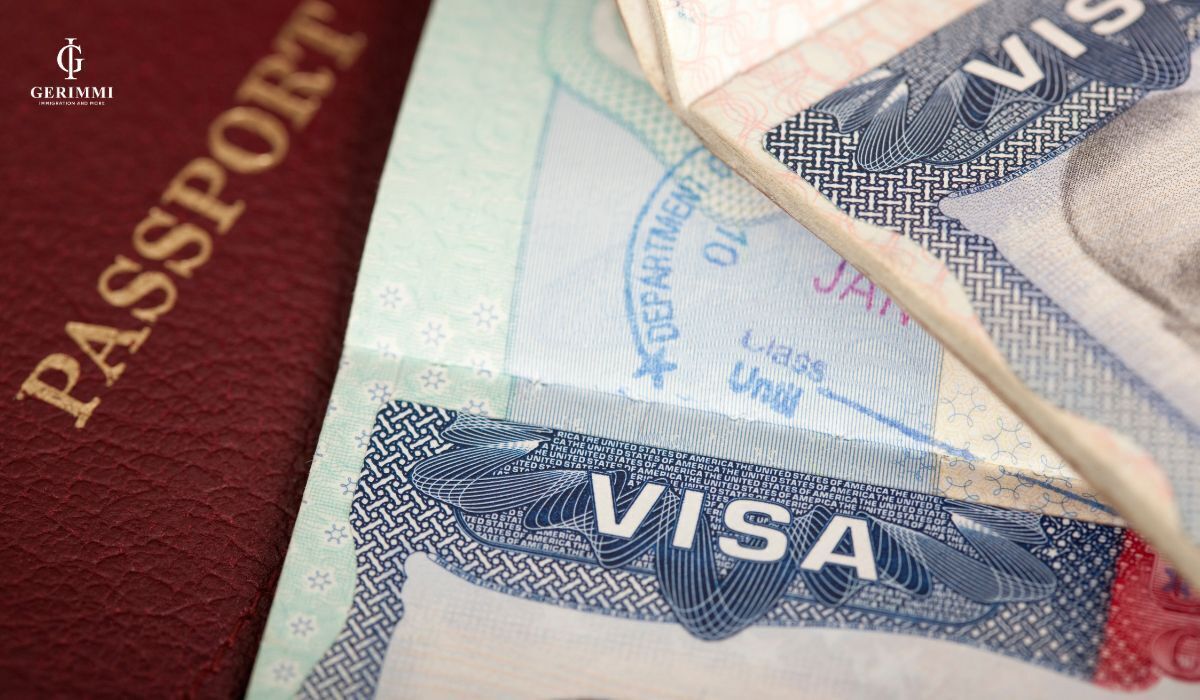
III. Conditions for applying for a German student visa in 2025
- Letter of admission
You need a letter of admission from a university or Studienkolleg in Germany. This letter is the basis for proving the legitimate purpose of studying abroad. If you only have an appointment letter waiting for results, you can apply for a waiting visa and switch after receiving an official invitation letter.
- Proof of funds
You must prove that you have the ability to pay approximately 11,332 EUR/year through a blocked account (Sperrkonto) or a scholarship. This is a mandatory requirement to ensure that you do not have financial difficulties while studying in Germany. Having a balance greater than the minimum will make your visa application more convincing.
- Language Certification
A German B1/B2 or English (IELTS/TOEFL) certificate is required if you are studying an international program. Good language skills will help you adapt quickly and reduce the pressure of studying. Some preparatory or university courses may accept lower level certificates according to the regulations of each school.
- APS
Some courses in Germany require an APS certificate to verify your academic qualifications, especially engineering or medicine. The APS helps the consulate to believe that you have the academic ability to follow the program. If the APS is not required, you need to prepare alternative documents such as a university degree or a notarized translation of your transcript.
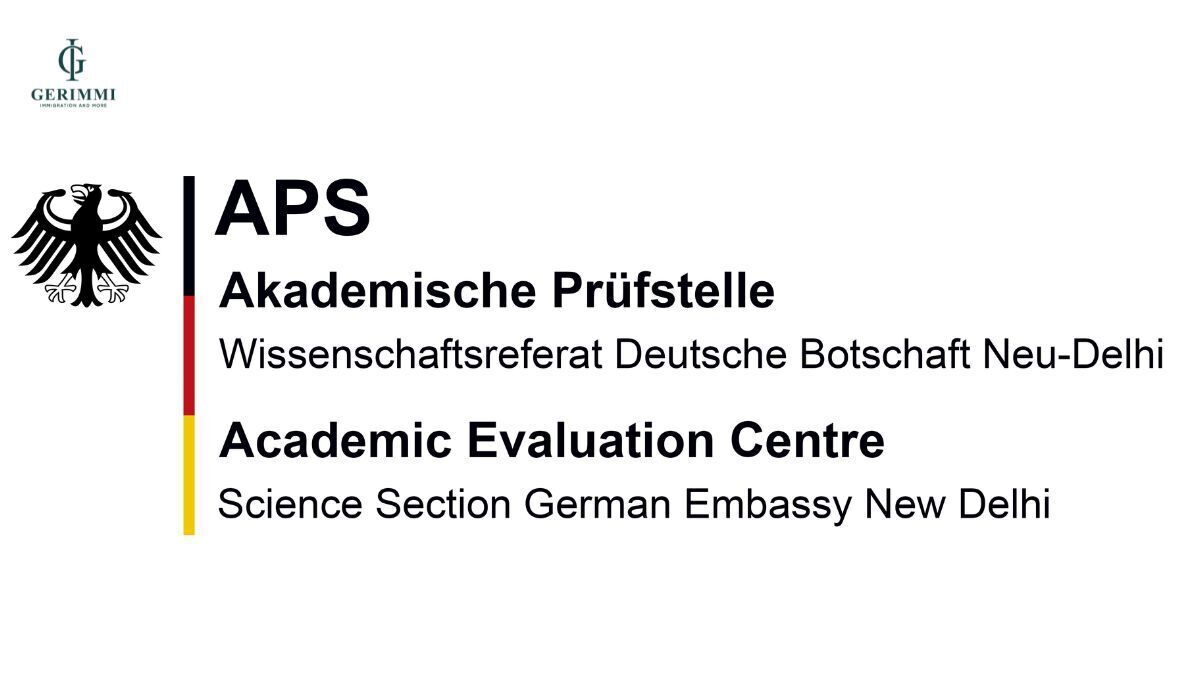
IV. Documents needed to apply for a German student visa
- Letter of admission
You must have an official letter of admission from a university or Studienkolleg in Germany. This is a clear proof of your legitimate study intentions and is one of the most important documents in the application process.German student visa. If you do not have an official letter of admission, you can use a preparatory study invitation or an appointment letter from the school.
- Proof of funds
You need to have a blocked account with a minimum amount of 11,332 EUR in a bank account recognized by Germany, or provide an official scholarship confirmation. Proof of financial means is to ensure that you have sufficient funds to cover your living, accommodation, insurance and study costs during your stay in Germany.
- Certification APS
APS certification is a mandatory academic verification step for Vietnamese students studying at universities in Vietnam who wish to study in Germany. APS helps to authenticate the reliability of transcripts, degrees and the equivalence of the education systems between Vietnam and Germany, thereby increasing transparency and efficiency in the admission process.
- Language Certification
Depending on the program you are applying for, you will need to submit a German language certificate such as TestDaF, Goethe Zertifikat B1-B2 or an English language certificate such as IELTS/TOEFL. Language ability is not only a requirement for admission to a school but also a key factor in helping you study effectively and quickly integrate into the German academic and cultural environment.
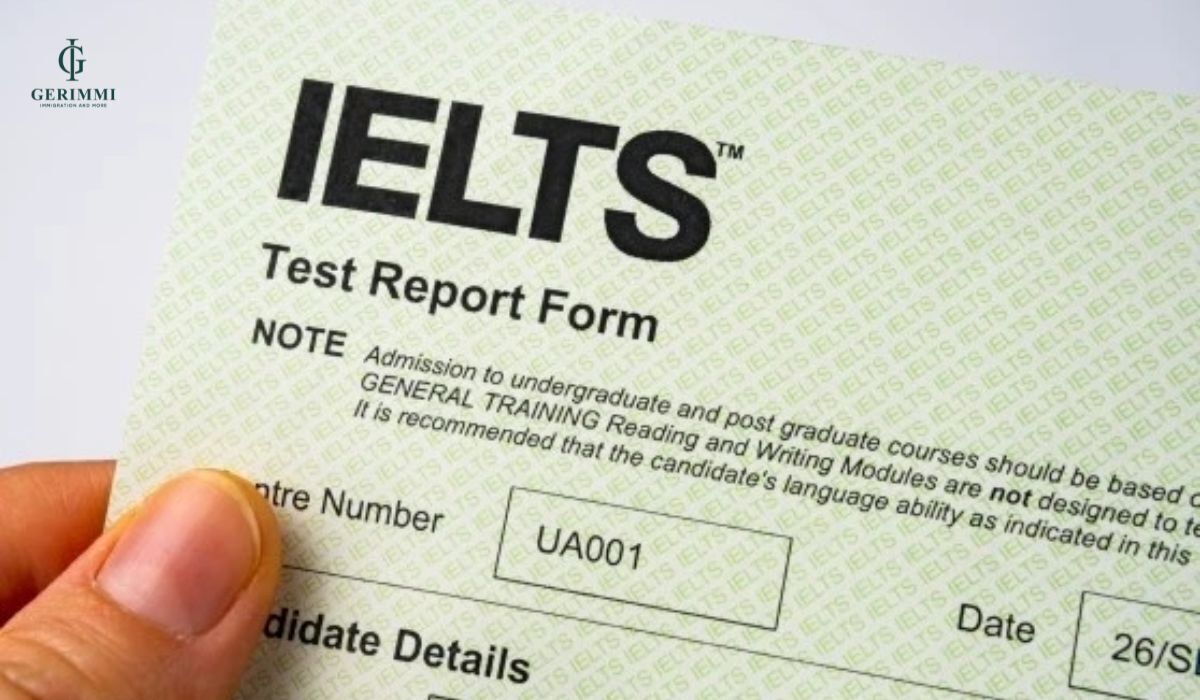
V. Procedures for applying for a German student visa
Step 1: Make an appointment
You need to access the online appointment system of the German Embassy or Consulate to choose the date and time to submit your application. Prepare your documents carefully before making an appointment so that you are not passive and miss the appropriate time for the admission period. Making an appointment early also gives you more options for the time that suits your personal schedule.
Step 2: Submit application & interview
Arrive on time to submit your complete application and attend an interview if required. This is your opportunity to demonstrate your thorough preparation and to clearly answer questions about your study and financial plans when applying.German student visaShowing a serious attitude during the interview will create a positive impression on the consular officer.
Step 3: Wait for approval results
The application review period usually lasts from 6 to 12 weeks, depending on the time and volume of applications at the consulate. You need to monitor your email regularly to respond quickly if you are asked to provide additional documents or clarify information. In the meantime, you should continue to complete your study plan and prepare the necessary luggage for life in Germany.
Step 4: Get visa and prepare to fly
If your application is approved, you will receive your visa in person or by mail, depending on the method you choose. Before booking your flight, please check the information carefully.German student visa to ensure that there are no errors that could affect your trip. At the same time, you should also check the entry regulations and procedures at the airport.
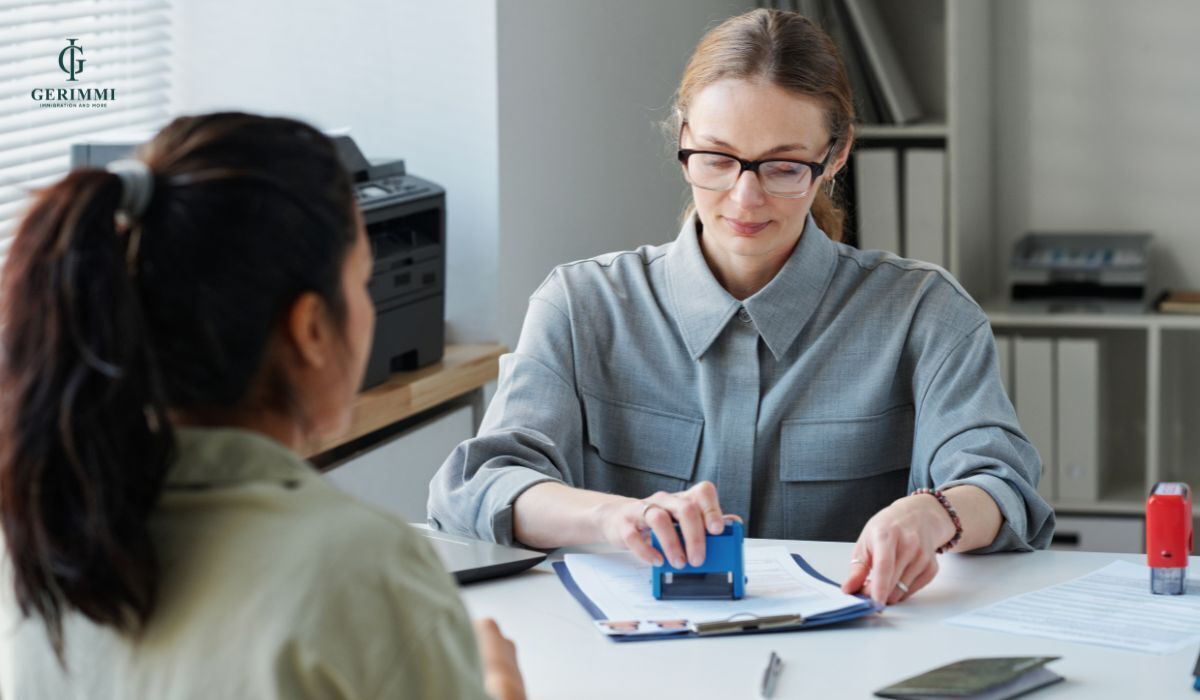
VI. Fees and processing time for German student visa
- Application fee
The current visa application fee is 75 EUR and may change depending on the consular policy at any time. This fee is non-refundable, even in case of rejection, so you need to prepare carefully before submitting. Always check the latest information on the official website of the German Embassy to avoid errors.
- Translation & Notarization Fees
All documents not in German or English require notarized translation upon request. You should choose reputable units to ensure the quality of the translation is consistent with the standards of the documents.German student visa. Errors in translation may result in rejection or resubmission of the application, resulting in a waste of time.
- Blocked account opening fee
In addition to the EUR 11,332 required in the blocked account, the bank may charge additional fees for opening, maintaining or transferring money internationally. You should contact the bank directly for detailed advice and to avoid additional costs. It is advisable to choose a bank that has international student support services to make the account opening process smoother.
- Processing time
Visa processing takes an average of 6-12 weeks, and can take longer during peak season from June to September. If you need to start your studies on time, you should apply at least 3 months in advance to allow time for any additional consular requirements to be processed. Keep a close eye on your email so you don’t miss any notifications from the consulate.
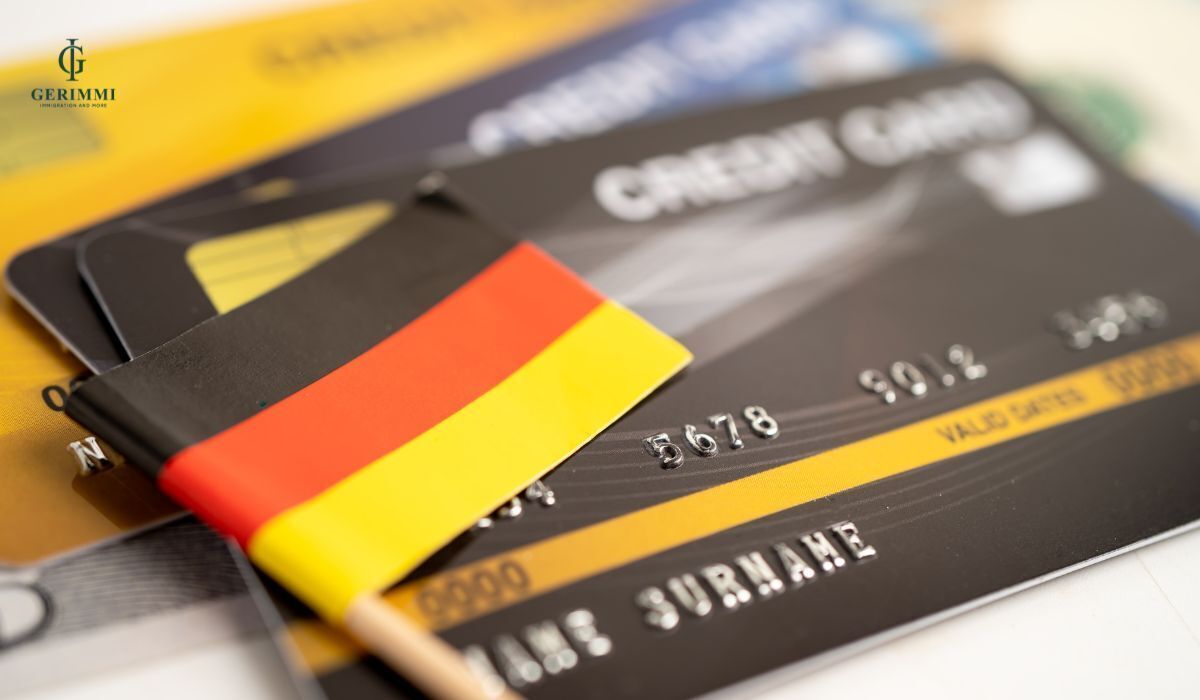
VII. Tips for a successful German student visa interview
InterviewGerman student visa is an opportunity for you to demonstrate clear learning goals and readiness to integrate into a new environment. Careful preparation is a key factor to help you be confident and make a good impression on the consulate. In addition, a sincere and professional attitude also plays a decisive role in the final result.
- Understand the content of the profile
You need to understand and remember important information in your profile such as your major, school, finances and reasons for choosing Germany. When asked, answering coherently and consistently will help you score big points in the eyes of the interviewer. This will also help you handle unexpected questions that may arise during the conversation.
- Practice interviewing in advance
Practicing answering common questions helps you proactively respond to any situation in the interview room. This helps you control your psychology well and show professionalism when applying German student visa. You can ask friends, family, or professionals for help to respond more effectively.
- Dress politely, confident attitude
A neat appearance and confident attitude will show that you are serious and responsible about your study plan. In addition, maintaining eye contact and a friendly smile will help the conversation go more smoothly. Don't forget to show gratitude and respect to the interviewer throughout the process.
- Answer honestly and clearly
All information you provide must be truthful and consistent with the submitted application. Avoid giving vague or inaccurate answers as this may directly affect the review result.German student visa. Telling the truth not only makes you more confident but also increases the credibility of your profile.

VIII. Common mistakes when applying for a German student visa
Not a few applicationsGerman student visaYou may be rejected for seemingly small but very important mistakes. Knowing these mistakes in advance will help you prepare more carefully and avoid unnecessary risks. The more mistakes you can avoid, the higher your chances of getting a visa.
- Missing important documents
Many applications are returned due to forgetting to submit an offer of admission, proof of funds or language certificates. Use the consulate checklist and double-check before submitting your application to ensure that nothing is missing. Missing documents may require you to reschedule your appointment and delay the application process.
- Inconsistent information
Details such as full name, date of birth, major, etc., if different between documents, will raise doubts about the reliability. Please check all information on your passport, academic records and financial documents carefully before submitting your application.German student visa. A small mistake can cause you to be asked for explanation or additional information, which can prolong the review time.
- Weak financial proof
A blocked account that lacks the minimum amount or invalid scholarship documents are common reasons for rejection. You need to have stable and legal funds and be able to explain the source of funds if asked. Always keep copies of transactions and documents ready to provide when needed.
- Lack of interview preparation
Many students fail to get a visa because they do not practice, falter or are unclear in their answers. Invest time in practicing your speaking, researching your program and preparing a clear study plan to build trust with the consulate. A smooth interview can be the key to a successful application.German student visa.

IX. Frequently asked questions about German student visa (FAQ)
- What documents do I need to prepare to apply for a German student visa?
You will need an admission letter, a blocked account or scholarship, a passport, a photo, a visa application, a degree, a German/English language certificate, health insurance and a criminal record. Being fully prepared and accurate will increase your chances of getting a visa on the first try.
- How long does it take to process a German student visa?
Usually takes 6-12 weeks. It is recommended to submit at least 3 months before the admission period to avoid delays and allow time for additional documents if needed.
- What are the common questions asked in German student visa interviews?
Common questions include: reasons for choosing Germany, field of study, study plan, finances, language ability and plans after graduation. You should practice your answers in advance to show confidence and clarity in the interview.
- Does a German student visa allow part-time work?
Yes. Students are allowed to work up to 120 full-time days or 240 part-time days per year. However, you need to ensure that the part-time work does not interfere with your studies.
- Why should you choose to study in Germany?
Because Germany offers free or low tuition fees, quality degrees, good career opportunities and a safe, multicultural living environment. In addition, you also have access to a practice-oriented education and the opportunity to settle down after graduation.
Conclusion
The process of applying for a German student visa can be complicated if you are not well prepared, but it is completely within your reach if you understand the process and invest your time properly. Hopefully this article will help you feel more confident on your study abroad journey and soon achieve your dream German visa. If you need further support on the document checklist or interview practice, do not hesitate to contact us!

